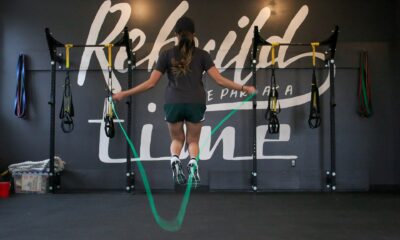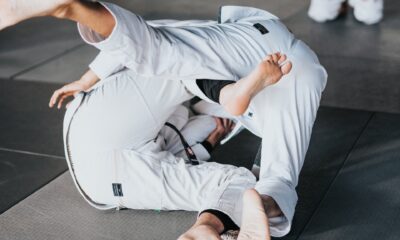Pet
Dog Training Tips: Throw me a bone, will you?
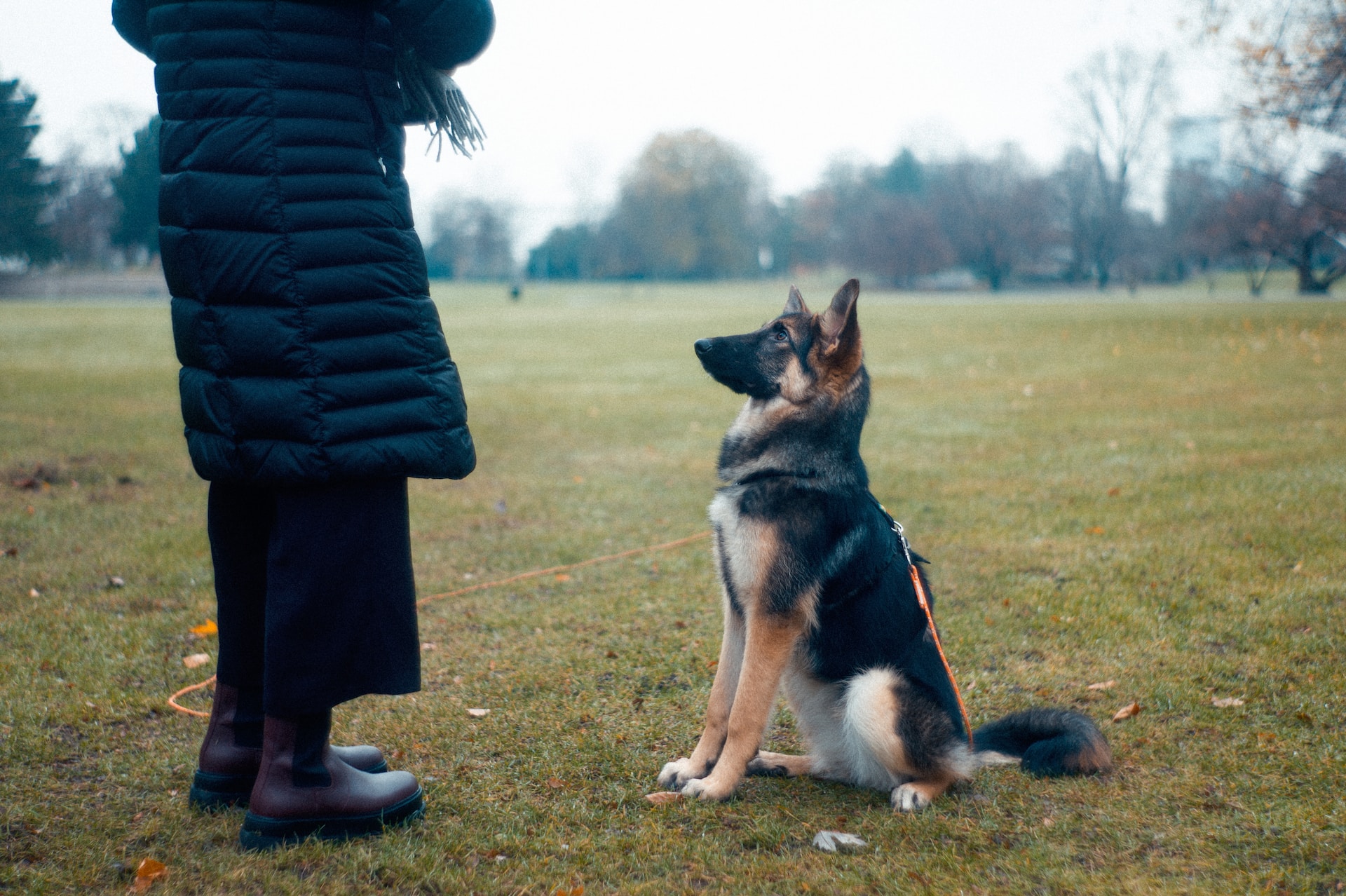
Introduction
It was a few years ago that I came across a television advertisement where the husband and wife play the role of dog and bitch (pun intended!) with the message being that when you pick a ‘mate for life’, one has to be careful as it will result in that ‘marry at haste, repent at leisure’ kind of situation, with which quite a few people are familiar with.
Relationships of all kind are under scrutiny these days with both parties looking to play the ‘alpha’ & ‘beta’ role. But no matter what you say, the relationship between men/ women and their ‘man/woman Friday’ has always been comforting to say the least.
Dog Psychology & Training them ‘The Right Way’
While Ivan Pavlov used dogs to illustrate ‘classical conditioning’… he wasn’t trying to train them, as that is a cruel way to treat animals (like lab rats) but of course, all in the name of science! This is mentioned because the old-school form of training used fear and harsh training methods to train an animal to obey.
It’s strange how we humans also respond much quicker to fear more than love…
As hard as it sounds but any relationships and especially with beasts, the feeling of mutual respect and trust are vital, no matter how sub-human (for lack of a better word!) people consider them to be.
With this kind of trust built, the master will begin to feel confidence in controlling their animal (especially if it is ferocious in nature).
A lot of experts believe that rather than suppressing a dog’s natural instincts and drives (which is the animal equivalent of ‘lobotomizing’ the poor beast), one must train them to use it in a manner that is useful to the animal and its surroundings – not detrimental. And as always, suppression has never known to yield good results either for man/ woman or beast.
If one ensures that the objective of his training is produce a dog that is happy and outgoing while being given the opportunity to socialize rather than being kept like a caged animal, the happiness this bring both to the owner and the dog are numerous. As bizarre as this might sound, the best results often come from training that are presented in a positive and NON VIOLENT manner.
In approaching training this way, you can easily teach a dog to respond to a ‘command’ for practically any purpose that you would see fit.
Basic Dog Training Tips
Although the use of an experienced dog trainer is recommended, there are some simple tips of dog training that we can use to train a puppy or dog which can span anything from obedience training to specialized areas such as protecting people and property, law enforcement, assistance to people with disabilities and so on and so forth. So, let’s focus on ‘obedience training’ in assuming that most of us have nothing to do with the aforementioned specialized dog training types.
Normally, there are six behaviors associated with obedience training such as ‘Sit’, ‘Down’, ‘Stay’, ‘Recall’, ‘Close’ or ‘Heel’, which uses the approach where only desired behavior is rewarded while undesirable behavior is just IGNORED instead of punished.
However, there are a three others that can be of help to you personally as well the folks in the neighborhood:
How to train a dog:
1) Not to bite
One of the simplest methods is to divert the dog’s attention by tugging his leash and directing his attention to something more productive.
2) To fetch the newspaper
Throw a tennis ball while having the dog retrieving it for you, while being on a leash. If it’s not on a leash, pretend to walk away after the dog has retrieved the ball.
3) Not to bark at visitors
Barking at visitors can seem threatening, so the trick is to teach it to ‘sit’ as soon as the doorbell rings.
Using a kennel crate is a fast and effective way to housebreak your dog, because they are less likely to pee or poop where they sleep.
Conclusion
There’s a big difference between persuasion and coercion, and perhaps in relationships if people did comprehend that the former is always better than the latter, perhaps things would be different today, but in any case, there are some folks who need others ‘to throw them a bone’ etc. And therein lies the ‘catch’…
Pet
French Bulldog Prices: The Impact of Popularity on Cost

To the world of French Bulldog Prices, where charm meets a price tag! These adorable bat-eared companions have skyrocketed in popularity in recent years, but what exactly influences the cost of owning one? Join us as we delve into the realm of French Bulldog prices and uncover the factors that determine their hefty price tags. Whether you’re a seasoned Frenchie enthusiast or considering welcoming one into your family, this blog will shed light on why these lovable pups come with a premium cost.
The rising popularity of French Bulldogs
French Bulldogs have skyrocketed in popularity in recent years, becoming one of the most sought-after dog breeds worldwide. Their charming personalities, adorable looks, and compact size make them irresistible to many potential pet owners. Social media influencers and celebrities showcasing their Frenchies have only added fuel to the fire.
The rise in urban living and apartment dwellers also plays a role in the breed’s popularity since Frenchies are well-suited for smaller living spaces. Their low exercise needs but high affection levels make them ideal companions for busy individuals looking for a loyal friend without demanding rigorous workouts.
Furthermore, their adaptability to various lifestyles, from city slickers to suburban families, has made French Bulldogs a versatile choice for a wide range of households. It’s no wonder that these pint-sized pups have captured the hearts of so many across different walks of life.
Factors that influence the cost of a French Bulldog
When it comes to the cost of French Bulldogs, there are various factors that can influence the price tag attached to these adorable pups. One significant factor is the lineage and pedigree of the dog. Frenchies with champion bloodlines or rare coat colors tend to fetch higher prices due to their desirable traits.
Another factor that impacts pricing is the breeder’s reputation and experience. Reputable breeders who prioritize health testing, socialization, and proper care for their dogs will typically charge more for their puppies. These breeders invest time and resources into breeding healthy and well-adjusted French Bulldogs.
Additionally, supply and demand play a crucial role in determining French Bulldog prices. As the popularity of this breed continues to rise, so does the demand for Frenchies, which can drive up costs. The location of where you’re purchasing your Frenchie from can also affect prices as certain areas may have higher demand or different breeding standards.
It’s essential to consider all these factors when looking at French Bulldog prices as they provide insight into why some puppies may be priced higher than others on the market.
Understanding the price range for French Bulldogs
When it comes to understanding the price range for French Bulldogs, there are several factors that come into play. The cost of a Frenchie can vary widely depending on various elements such as pedigree, coat color, breeder reputation, and location.
Purebred French Bulldogs from reputable breeders will generally be more expensive compared to those from backyard breeders or puppy mills. It’s essential to do thorough research before committing to a purchase to ensure you’re getting a healthy and well-bred pup.
The color of the Frenchie’s coat can also impact the price. Rare colors like blue or merle may command a higher price tag due to their popularity among buyers seeking unique-looking dogs.
Additionally, geographical location plays a role in pricing. Urban areas tend to have higher prices than rural areas due to differences in demand and cost of living.
By understanding these various factors that influence the price range for French Bulldogs, potential owners can make informed decisions when looking for their furry companion.
Hidden costs of owning a French Bulldog
French Bulldogs are undeniably charming and lovable companions, but it’s important to be aware of the hidden costs that come with owning one. Beyond the initial purchase price, there are ongoing expenses to consider.
One significant cost is veterinary care. Frenchies can have health issues like breathing problems due to their flat faces, which may require medical attention. Regular check-ups, vaccinations, and potential surgeries can add up quickly.
Another aspect to budget for is grooming. Their short coats shed year-round, so regular brushing and occasional professional grooming sessions may be necessary. Additionally, specialized dog shampoos and ear cleaning products tailored to their sensitive skin need to be factored in.
Don’t forget about food! French Bulldogs have specific dietary needs; quality dog food formulated for small breeds can be pricier than generic brands. Treats, toys, training classes – these all contribute to the overall cost of Frenchie ownership.
Responsible breeding and its effect on prices
Responsible breeding plays a significant role in determining the prices of French Bulldogs. Reputable breeders invest time, money, and effort into ensuring the health and well-being of their dogs. By prioritizing genetic testing, proper care, and ethical practices, responsible breeders produce high-quality puppies with fewer potential health issues.
These conscientious breeders often have higher initial costs associated with breeding healthy French Bulldogs. From regular vet check-ups to quality nutrition and socialization efforts, the expenses add up but result in healthier puppies in the long run. This commitment to breeding ethically ultimately impacts the pricing of their French Bulldogs.
When considering purchasing a French Bulldog, it’s essential to support responsible breeders who prioritize the welfare of their dogs over profits. While these puppies may come at a higher price point initially, investing in a well-bred Frenchie can save on future veterinary bills and ensure a happier life for your furry companion.
Tips for finding a reputable breeder with fair prices
Looking to bring a French Bulldog into your family? Finding a reputable breeder is key. Start by researching breeders online and reading reviews from other buyers. A good breeder will prioritize the health and well-being of their dogs over profit.
When contacting potential breeders, ask about health testing, breeding practices, and the living conditions of their dogs. A responsible breeder will be transparent and open to answering all your questions.
Visit the breeder in person if possible to see firsthand how the dogs are raised. Pay attention to cleanliness, socialization, and overall care provided to the animals.
Don’t be afraid to walk away if something doesn’t feel right or if the prices seem too good to be true. Quality comes at a cost when it comes to responsibly bred French Bulldogs.
Remember that finding a reputable breeder may take time, but it’s worth it for the well-being of your future furry companion.
Alternatives to purchasing a purebred French Bulldog
When considering adding a French Bulldog to your family, it’s essential to explore alternatives beyond purchasing a purebred. One option is adopting from a rescue or shelter. Many Frenchie enthusiasts are surprised by the number of these lovable dogs in need of forever homes. By adopting, you not only provide a loving home for a dog in need but also potentially save on costs associated with buying from breeders.
Another alternative is looking into breed-specific rescues that specialize in French Bulldogs. These organizations often have thorough screening processes and can help match you with the right furry companion based on your lifestyle and preferences. Additionally, consider fostering a French Bulldog if you’re not ready for the long-term commitment of ownership but still want to help these adorable pups find their perfect homes.
Exploring these alternatives can be rewarding both emotionally and financially while still allowing you to experience the joy of having a French Bulldog as part of your family dynamic.
French Bulldog Prices: A Case Study in Supply and Demand
French Bulldogs have captured the hearts of many with their charming personalities and adorable looks. However, this surge in popularity has led to a rise in prices due to the basic economic principle of supply and demand. As more people desire these lovable companions, breeders increase prices to meet the growing demand.
The limited availability of well-bred French Bulldogs also plays a significant role in pricing. Responsible breeders focus on quality over quantity, which can lead to higher costs for potential buyers. Additionally, factors such as breeding standards, health screenings, and lineage contribute to the overall price tag of these sought-after pups.
When considering purchasing a French Bulldog, it’s essential to understand how market forces impact their prices. The laws of supply and demand dictate that as long as there is high demand for these dogs, prices are likely to remain elevated unless market dynamics shift significantly.
French Bulldog Prices: The Future of Frenchie Prices
As we look ahead to the future of French Bulldog prices, it’s essential to consider the evolving landscape of this beloved breed. With their rising popularity and limited availability, Frenchie prices are expected to continue on an upward trend. As demand for these adorable companions grows, so does the price tag associated with owning one.
Factors such as breeding practices, healthcare costs, and market trends will play a significant role in determining the future cost of French Bulldogs. Responsible breeding practices that prioritize health and temperament can lead to higher-quality puppies with a corresponding increase in price.
While the prospect of higher prices may deter some potential owners, it’s important to remember that owning a French Bulldog is not just about the initial cost but also about providing a loving home for these unique and charming dogs. The future of Frenchie prices remains uncertain, but one thing is certain – these lovable pups will continue to capture hearts around the world.
French Bulldog Prices: Don’t Be Shocked by the Cost of This Adorable Breed
French Bulldog prices can sometimes come as a surprise to prospective dog owners. These adorable little companions have captured the hearts of many, which has contributed to their popularity and subsequently, their price tag. When considering bringing home a French Bulldog, it’s essential to understand the factors that go into determining their cost.
The demand for French Bulldogs has skyrocketed in recent years, leading to an increase in prices. Factors such as breed quality, pedigree, coat color, and breeder reputation all play a role in setting the price for these lovable pups. It’s important not to be shocked by the cost but rather see it as an investment in a lifelong companion.
While the initial price of purchasing a French Bulldog may seem high, it’s crucial to also consider the ongoing costs of ownership. From food and grooming to veterinary care and training expenses, owning a Frenchie requires a financial commitment beyond just the purchase price.
Finding a reputable breeder who practices responsible breeding is key when looking for a French Bulldog at a fair price. By doing thorough research and asking the right questions, you can ensure that you are supporting ethical breeding practices while also getting good value for your money when adding one of these delightful dogs to your family.
French Bulldog Prices: Are You Ready for the “Frenchie” Price Tag?
French Bulldogs, often affectionately referred to as “Frenchies,” have become a popular choice for dog lovers around the world. However, potential owners should be prepared for the price tag that comes with these adorable companions. The cost of purchasing a French Bulldog can vary significantly depending on various factors such as pedigree, breeder reputation, and demand.
It’s essential to understand that owning a Frenchie goes beyond the initial purchase price. Consider additional expenses like veterinary care, food, grooming, training, and possible health issues that may arise due to their brachycephalic nature.
While the allure of owning a trendy breed like the French Bulldog is undeniable, it’s crucial to weigh the financial commitment carefully. Research reputable breeders who prioritize health and ethical breeding practices over profit margins when looking for your furry companion.
Before diving into bringing home a French Bulldog puppy or adult dog, ensure you’re financially prepared for both upfront costs and ongoing care expenses associated with this beloved breed.
French Bulldog Prices: Understanding the Factors that Influence Cost
French Bulldog prices can vary significantly based on several key factors that influence the cost of owning one of these adorable pups. One major factor is the breed’s popularity, which has skyrocketed in recent years due to their charming demeanor and compact size. The demand for Frenchies has led to an increase in their prices across the board.
Another aspect that affects French Bulldog prices is the quality of breeding. Well-bred French Bulldogs from reputable breeders often come with a higher price tag compared to those from less scrupulous sources. Health screenings, genetic testing, and proper care during breeding all contribute to the overall cost.
Additionally, certain coat colors or rare patterns can drive up the price of a French Bulldog. It’s essential for potential Frenchie owners to understand these factors when considering adding one to their family.
Conclusion: Owning a French Bulldog is an investment
Owning a French Bulldog is more than just having a pet; it’s an investment in companionship and joy. These lovable creatures bring laughter and warmth to your home, forming bonds that last a lifetime. From their quirky personalities to their adorable looks, Frenchies have a way of melting hearts and becoming part of the family.
While there are costs involved in caring for a French Bulldog, the rewards far outweigh them. The love and loyalty they offer are priceless, creating memories that you’ll cherish forever. It’s not just about the financial aspect; it’s about the emotional value they bring into your life.
As you embark on this journey with your Frenchie by your side, remember that the true investment lies in the happiness they bring and the special moments you share together. So embrace every wag of their tail, every snuggle on the couch, and every slobbery kiss – because owning a French Bulldog is truly an investment in happiness.
FAQs
Q: Why are French Bulldogs so expensive?
A: French Bulldogs are costly due to their popularity, breeding challenges, and high demand.
Q: Are there any hidden costs associated with owning a French Bulldog?
A: Yes, potential owners should consider expenses like vet bills, grooming, training, and quality food.
Q: How can I find a reputable breeder for a fair price?
A: Look for breeders who prioritize health testing, ethical breeding practices, and proper care for their dogs.
Q: What alternatives exist to purchasing a purebred French Bulldog?
A: Consider adopting from shelters or rescues to provide a loving home to a Frenchie in need.
French Bulldog Prices may seem steep at first glance. Still, understanding the factors influencing these costs reveals the investment required in bringing one of these adorable companions into your life.
FOR FURTHER INFORMATION VISIT:http://fitbuff.com
Pet
Dog Walking Benefits
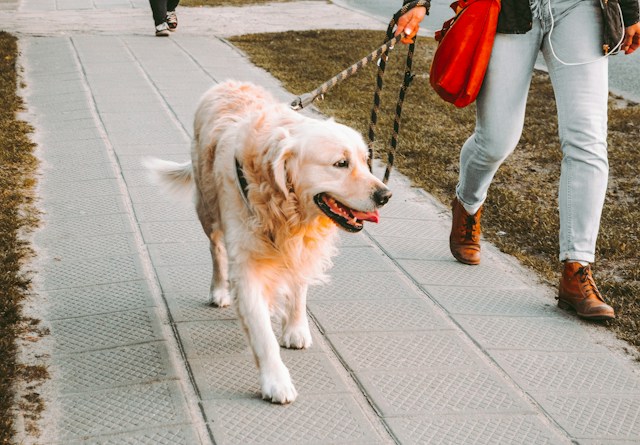
The motivation to exercise is often drowned by a plethora of excuses sometimes. If there’s an opportunity to have fun, one tends to pull out all the stops in order to make the most of this time but when the topic of exercise comes about, the person tends to back out.
While one of the most popular suggestions for people who wish to work out is to exercise with a partner, sometimes your partner can be the person who works to the detriment of your fitness goals by not showing up or making excuses for their laziness.
But this theory of having a partner does not fail in one instance – when you have a pet!
How Dog Walking can help in Fat Loss
If you think a dog is lazy, you’ll immediately change your opinion once you see them going nuts in a park or when you are out walking them. In most cases, it’s the dog who walks the owner, and if it wasn’t for the leash, you’d be all over the place with them as well.
What this means is that in taking the dog to get their job done, this results in the owner to get off their butts to get some exercise – even if it means going out for a walk.
And that’s subtle motivation, if you ask me.
While most people who have to make it a point to walk their dog often find this to be tiresome, just looking at it differently will help you enjoy this menial chore. Yes, we’re talking about looking at it as exercise for yourself in the bargain.
And you can be sure that you dog will not say no to a walk in the park, much like your human friend might.
In a recent study that was conducted where the owner and the dogs were overweight, it was found that in walking these dogs everyday for at least six months, both the dogs and their owners lost about 3 to 5 pounds.
And since the weekly recommended time for exercise is about 150 minutes, it should have been pretty obvious that dog owners actually benefited from this form of exercise as opposed to those who did not own a dog.
And there are other benefits, if you ask me…
Benefits of Dog Walking
#1: In walking your dog everyday, you will get to meet several more people in your neighborhood, and if your dog isn’t ferocious enough, you’ll stand a chance of making a few friends or even being popular at the most.
#2: Not only will you physical health improve but your mental health also improves greatly, thanks to the time spent in the sun. (Healthy tan, anyone?)
#3: You won’t fall sick and your fitness levels improve steadily.
#4: Walking the dog means excellent exercise for the buttock, thighs and legs while also strengthening the cardiovascular system.
#5: Most of all, your endurance levels increase and you can then fatigue and running out of breath good-bye.
In Closing
Yeah, and that’s why they continue to use the adage that a dog is a man’s best friend, you see!
Pet
Dog Walking: Run Forrest Run…
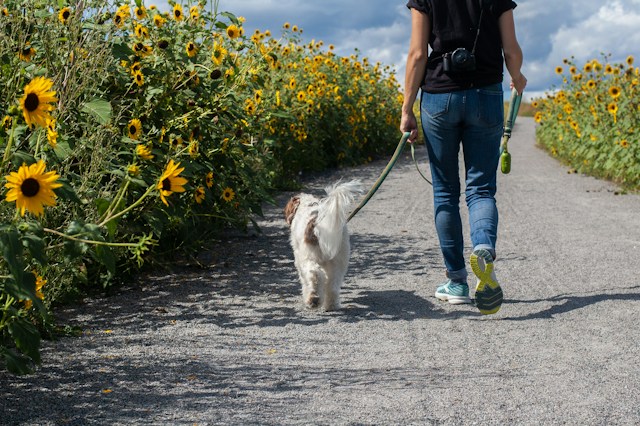
Introduction
It’s funny how taking a dog for a walk can get really physical with absolutely no warning, other than the burst of energy from the German Shepherd kennel to the front door. There comes a point when it seems as if the dog is taking you for a walk, and is in no hurry to finish its business. Yes, the proverbial sprint, which could bring flashbacks of Jenny screaming ‘Run, Forrest, Run’ in trying to keep up with the animal’s athletic ability until it decides to take a breather from scaring the wits out of all and sundry.
And then the next day, it is time to go through the motions all over again. So much for being a dog owner… huh?
However, if one must look on the brighter side, this experience does a lot of good for its owners especially if they’re not necessarily the indutrious types to get up and get physically active and of course, making you wish that God or a ‘higher power’ had given you an extra pair of legs.
Talk about motivation!
Going Dog Walking? Kiss obesity goodbye…
Almost everyone who works out knows how important it is to have a partner and this is where your dog will come in handy, even though it might be able to do somethings that a human partner can do for you.
A study was conducted by Dr. Green, director of the Bassett Research Institute in Cooperstown, New York in collaboration with Iams company (a manufacturer of dog food) with 12 pet dogs and their humans both being overweight.
The dogs were to be walked for atleast seven miles a day over a period of six months while also reviewing their diet as well. The results showed that the dogs lost more weight (about 5 pounds) than their human partners (about 3 pounds) but what was satisfying about the study was that the owners felt fitter and much better than before.
So, it was obvious that those who owned dogs stood a better chance of meeting the 150 minutes of physical activity per week as compared to those who did not own dogs.
Not only does this kind of physical activity prove to be an easier option for those who are obese, but it also becomes a routine where both the dog and owner can motivate each other to get off their butts and drop a few more pounds.
However, apart from just physical benefits, there are several other benefits in walking your dog and here are some of them.
Benefits of Walking your Dog
1) People who walk their dogs are perceived as generally friendly, leading to socializing opportunities in the neighborhood.
2) Improvement in mental health due to regular exercise and time spent in the sun as well as enhancing creativity in tasks.
3) Lose cravings for fatty foods due to the healthy change in chemical balance.
4) Some of the other physical benefits include:
a. Not falling sick at all
b. Build up of endurance while not running out of breath and experiencing fatigue.
c. Strengthening of the cardiovascular system
d. An excellent form of exercise for buttocks, legs and thighs.
In Closing
Choosing a dog for a partner in exercising definitely has its advantages as their stamina is in most cases better than yours, and thus will result in your having to ‘raise your game’. Most of all, they will never let you down unlike human partners who might have something or the other that stops them from exercising. No wonder dogs are known to be man’s best friend…
-

 Entertainment1 year ago
Entertainment1 year agoYoungTube 101: Tapping the Youthful Side of Online Video
-

 Entertainment2 years ago
Entertainment2 years ago4 Reasons Why She Doesn’t Call You Back
-

 Fitness1 year ago
Fitness1 year agoThe Allure of Sports T-Shirts: A Blend of Style and Team Spirit:
-

 Fitness2 years ago
Fitness2 years agoTotal Mind and Body Fitness Blog Carnival 165
-

 Fitness2 years ago
Fitness2 years agoTotal Mind and Body Fitness Blog Carnival 141
-

 Health2 years ago
Health2 years agoWhat Is Healthy?
-

 Pet1 year ago
Pet1 year agoPet Supplies Plus: A Complete Guide to Pet Health
-

 Pet1 year ago
Pet1 year agoPet Supermarket Delights: Unleashing Joy for Your Furry Friends







